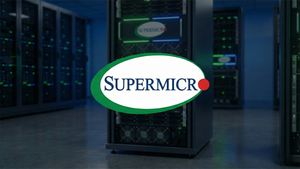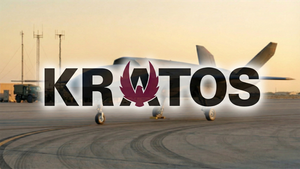--News Direct--
By Ernest Dela Aglanu, Benzinga
Houston, Texas-based Coya Therapeutics Inc. (NASDAQ: COYA) has just taken a giant leap in making effective proprietary treatments focused on certain neurodegenerative and autoimmune diseases available to more patients, as it announced the expansion of its exclusive worldwide rights for the development and commercialization of COYA 301 — the company’s low-dose IL-2 subcutaneous administration product candidate.
For industry watchers, including investors, this might be very important, especially as multiple autoimmune diseases have largely unmet medical needs. A deep dive into the statistics by the American Autoimmune Related Diseases Association (AARDA) shows that an estimated ~50 million Americans have one or more autoimmune diseases.
More worryingly, AARDA further said approximately 75% of those affected are women and tend to cluster in families, impacting multiple family members and generations. Autoimmune diseases are among the top 10 leading causes of death among American women.
Expansion Of Its Exclusive Worldwide Rights
The statistics around autoimmune diseases are certainly worrying. To help make a difference, players like Coya are actively ramping up and expanding their therapies to address the needs of the market.
Coya just announced the expansion of their exclusive worldwide rights with ARScience Biotherapeutics Inc. for the development and commercialization of COYA 301, Coya’s low-dose IL-2 subcutaneous administration product candidate.
Since 2020, the clinical-stage biotechnology company has been developing multiple therapeutic platforms to enhance T cell (Treg) function, including biologics and cell therapies.
COYA 301 is an immunomodulatory cytokine for subcutaneous administration intended to enhance regulatory Treg function in vivo to treat the systemic and neuro-inflammation underlying certain autoimmune and neurodegenerative diseases.
Under the expanded terms of the agreement with ARScience, Coya reports that it has been granted the rights to develop and commercialize COYA as a combination therapy across multiple therapeutic areas and disease conditions and as a monotherapy for various neurodegenerative disorders and autoimmune diseases.
The company expatiated that these additional rights expand on the rights provided in the original license, which allowed Coya to develop and commercialize the product candidate as monotherapy for a number of neurodegenerative conditions and as a combination Treg-based therapy across multiple therapeutic areas.
“We believe that Treg dysfunction is a common characteristic in certain neurodegenerative and autoimmune diseases. The expansion of the license agreement enables our development of COYA 301 in a potentially larger group of patients suffering from progressive diseases characterized by sustained inflammation,” Howard Berman, Ph.D., CEO of Coya, said in a statement.
According to him, the company’s strategy is to develop COYA 301 as a monotherapy and in combination with other immunomodulatory drugs (COYA 302) to potentially mitigate persistent inflammation.
Carlos Banado, CEO of ARScience Biotherapeutics, also commenting on the licensing agreement, noted, “there is not currently an approved recombinant human low-dose IL-2 for therapeutic use. The development of a low-dose IL-2 formulation, delivered via a subcutaneous injection, may provide effective treatment in a wide range of diseases characterized by increased inflammation. We are confident that Coya Therapeutics has the expertise to develop and commercialize this asset in multiple indications, and we look forward to a successful collaboration.”
The licensing agreement could be significant, especially as dysfunctional Tregs are the underlying cause behind numerous conditions, including neurodegenerative, metabolic and autoimmune diseases. This cellular dysfunction may lead to sustained inflammation and oxidative stress resulting in a lack of homeostasis of the immune system.
Luckily, Coya says its investigational product candidate pipeline leverages multiple therapeutic modalities aimed at restoring the anti-inflammatory and immunomodulatory functions of Tregs. The company’s therapeutic platforms include Treg-enhancing biologics, Treg-derived exosomes, and autologous Treg cell therapy.
The expansion of exclusive worldwide licensing agreement could give Coya an edge while having a positive impact on the global autoimmune disease diagnostics market with players like Exagen Inc. (NASDAQ: XGN), Oncimmune Holdings PLC (LON: ONC), and Retromer Therapeutics.
With the global market estimated to be worth $4.7 billion in 2021 and expected to reach about $8 billion by 2027 growing at a compound annual growth rate (CAGR) of 9.3%, the company appears well positioned for continued growth.
This article was originally published on Benzinga here.
About Coya Therapeutics, Inc.Headquartered in Houston, TX, Coya Therapeutics, Inc. (Nasdaq: COYA) is a clinical-stage biotechnology company developing proprietary treatments focused on the biology and potential therapeutic advantages of regulatory T cells (“Tregs”) to target systemic inflammation and neuroinflammation. Dysfunctional Tregs underlie numerous conditions including neurodegenerative, metabolic, and autoimmune diseases, and this cellular dysfunction may lead to a sustained inflammation and oxidative stress resulting in lack of homeostasis of the immune system. Coya’s investigational product candidate pipeline leverages multiple therapeutic modalities aimed at restoring the anti-inflammatory and immunomodulatory functions of Tregs. Coya’s therapeutic platforms include Treg-enhancing biologics, Treg-derived exosomes, and autologous Treg cell therapy. Coya’s 300 Series product candidates, COYA 301 and COYA 302, are biologic therapies intended to enhance Treg function and expand Treg numbers. COYA 301 is a cytokine biologic for subcutaneous administration intended to enhance Treg function and expand Treg numbers in vivo, and COYA 302 is a biologic combination for subcutaneous and/or intravenous administration intended to enhance Treg function while depleting T effector function and activated macrophages. These two mechanisms may be additive or synergistic in suppressing inflammation.
This post contains sponsored advertising content. This content is for informational purposes only and is not intended to be investing advice
Contact Details
David S. Snyder
Company Website
View source version on newsdirect.com: https://newsdirect.com/news/coya-therapeutics-expansion-of-exclusive-worldwide-licensing-agreement-with-arscience-biotherapeutics-could-have-outsized-impact-on-neurodegenerative-and-autoimmune-diseases-treatments-697081152




